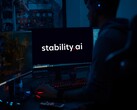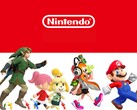The role of generative AI in the creation of art remains a contentious topic these days, particularly as the technology has evolved to produce video and music as well as text and imagery.
Anil Doshi of the Department of Strategy and Entrepreneurship at University College London's School of Management and Oliver Hauser from the Department of Economics at the University of Exeter teamed up to prove or disprove the theory that generative AI can make human writers more creative.
To this end, the researchers recruited 500 subjects and assigned them to produce eight-line stories with the help of either 1 "idea" generated by the most up-to-date OpenAI model of the time (GPT-4); up to 5 ideas or none at all.
The resulting content was then transferred to evaluators who judged it based on a novelty index and a "usefulness" index (based on how "appropriate" (to the target audience of readers between the ages of 15 to 24 years), "feasible" and "publishable" a given story was found to be).
Doshi and Hauser reported that stories written as a result of access to generative AI ideas produced significantly more "novel" and "useful" stories compared to those without, and were also significantly more "enjoyable", less "boring" and less predictable.
Nevertheless, the stories written with ideas were also found to have significantly more "similarity" to the average comparable story, suggesting, as the researchers note, that authors with generative AI assistance ended up more reliant on its suggestions than those without.
In addition, the apparently beneficial effects of generative AI was also reportedly more pronounced in writers that were less creative to begin with (based on their performance in the divergent association task (DAT, "a measure of an individual’s inherent creativity"); then again, only 24.5% of the humans in the 'up to 5 ideas' group maxed their prompts.
Furthermore, the evaluators were "at least 25%" less inclined to assign full ownership of the content to a given story's writer when informed that it had been written with the aid of generative AI.
Having published this study in the journal Science Advances, the authors now propose further research on the effect of generative AI ideas on longer-form written content, not to mention product development, to see if it really can level the playing field - and increase the homogeneity - of creativity in the future.
























